Search titles
Displaying results 121 to 130 of 358.
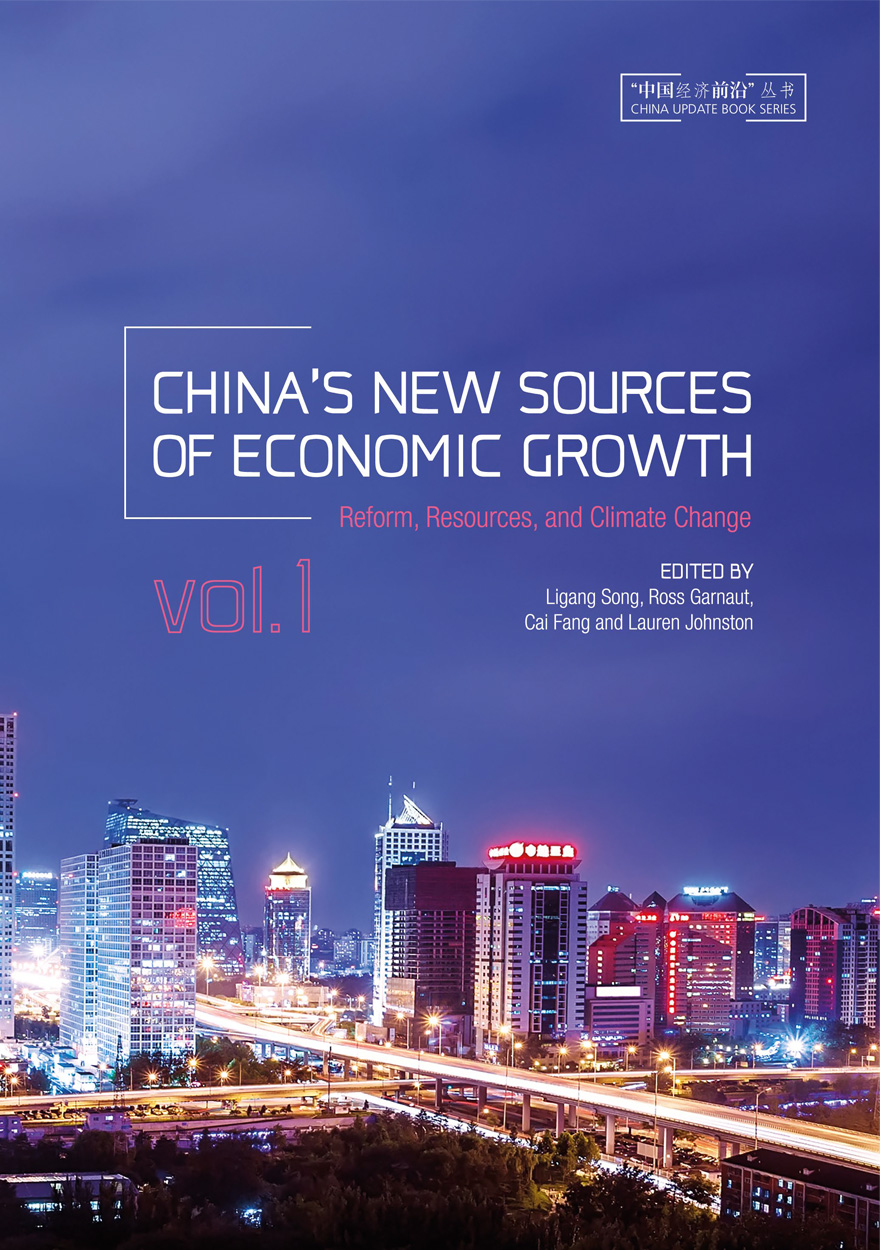
China's New Sources of Economic Growth: Vol. 1 »
Reform, Resources and Climate Change
Edited by: Ligang Song, Ross Garnaut, Cai Fang, Lauren Johnston
Publication date: July 2016
China’s change to a new model of growth, now called the ‘new normal’, was always going to be hard. Events over the past year show how hard it is. The attempts to moderate the extremes of high investment and low consumption, the correction of overcapacity in the heavy industries that were the mainstays of the old model of growth, the hauling in of the immense debt hangover from the fiscal and monetary expansion that pulled China out of the Great Crash of 2008 would all have been hard at any time. They are harder when changes in economic policy and structure coincide with stagnation in global trade and rising protectionist sentiment in developed countries, extraordinarily rapid demographic change and recognition of the urgency of easing the environmental damage from the old model. China’s economy has slowed and there are worries that the authorities will not be able to contain the slowdown within preferred limits. This year’s Update explores the challenge of the slowdown in growth and the change in economic structure. Leading experts on China’s economy and environment review change within China’s new model of growth, and its interaction with ageing, environmental pressure, new patterns of urbanisation, and debt problems at different levels of government. It illuminates some new developments in China’s economy, including the transformational potential of internet banking, and the dynamics of financial market instability. China’s economic development since 1978 is full of exciting change, and this year’s China Update is again the way to know it as it is happening
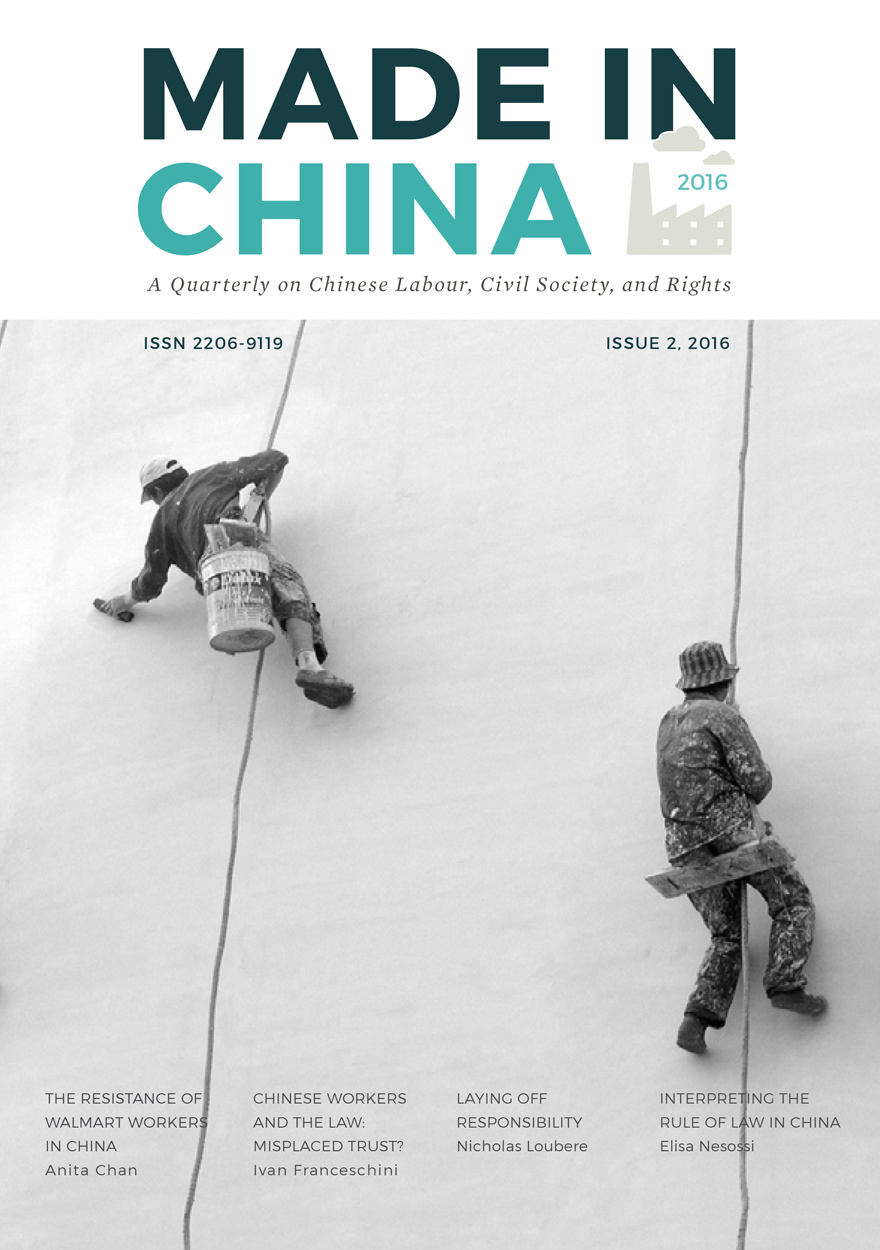
Made in China Journal: Volume 1, Issue 2, 2016 »
Edited by: Ivan Franceschini, Kevin Lin
Publication date: June 2016
Besides the usual summaries of recent events in China, in this issue you will find articles on the struggles of Walmart workers in China, the limits of the ‘rights awakening’ of Chinese workers, and the political implications of resorting to microcredit to alleviate unemployment. Included is also a Forum in which prominent legal experts put the concept of the ‘rule of law’ in China in a wider historical and political perspective and a compendium of the new Law on the Management of Foreign NGOs’ Activities within Mainland China.
Download for free
Not available for purchase

A Philosophy of Intellectual Property »
Authored by: Peter Drahos
Publication date: June 2016
Are intellectual property rights like other property rights? More and more of the world’s knowledge and information is under the control of intellectual property owners. What are the justifications for this? What are the implications for power and for justice of allowing this property form to range across social life? Can we look to traditional property theory to supply the answers or do we need a new approach? Intellectual property rights relate to abstract objects – objects like algorithms and DNA sequences. The consequences of creating property rights in such objects are far-reaching. A Philosophy of Intellectual Property argues that lying at the heart of intellectual property are duty-bearing privileges. We should adopt an instrumentalist approach to intellectual property and reject a proprietarian approach – an approach which emphasises the connection between labour and property rights. The analysis draws on the history of intellectual property, legal materials, the work of Grotius, Pufendorf, Locke, Marx and Hegel, as well as economic, sociological and legal theory. The book is designed to be accessible to specialists in a number of fields as well as students. It will interest philosophers, political scientists, economists, and legal scholars, as well as those professionals concerned with policy issues raised by modern technologies and the information society.
Download for free
Not available for purchase
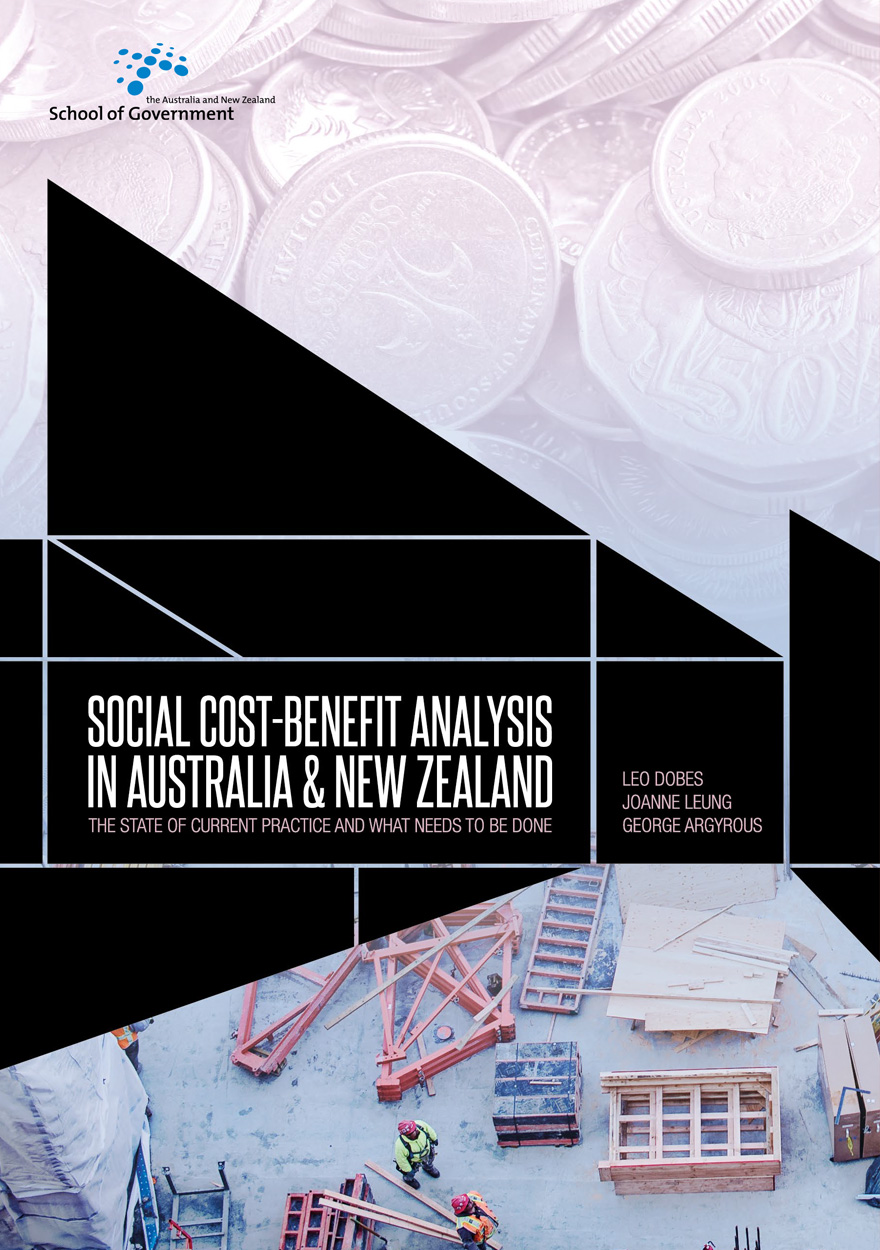
Social cost-benefit analysis in Australia and New Zealand »
The state of current practice and what needs to be done
Publication date: April 2016
All is not well with the evaluation of government programs and projects.
Resources available to any society are limited. If governments are to increase the well-being of their citizens, they must be able to select and implement the socially most beneficial projects and policies.
But many government agencies lack the expertise to carry out a cost-benefit analysis, or even to commission one. Commercial consultants, on the other hand, often have some analytical expertise, but are not immune from adopting approaches that accommodate the proclivities of their client agencies.
In order to increase analytical rigour and methodological consistency, this publication urges the adoption of a ‘belts and braces’ set of protocols for use in project evaluation.
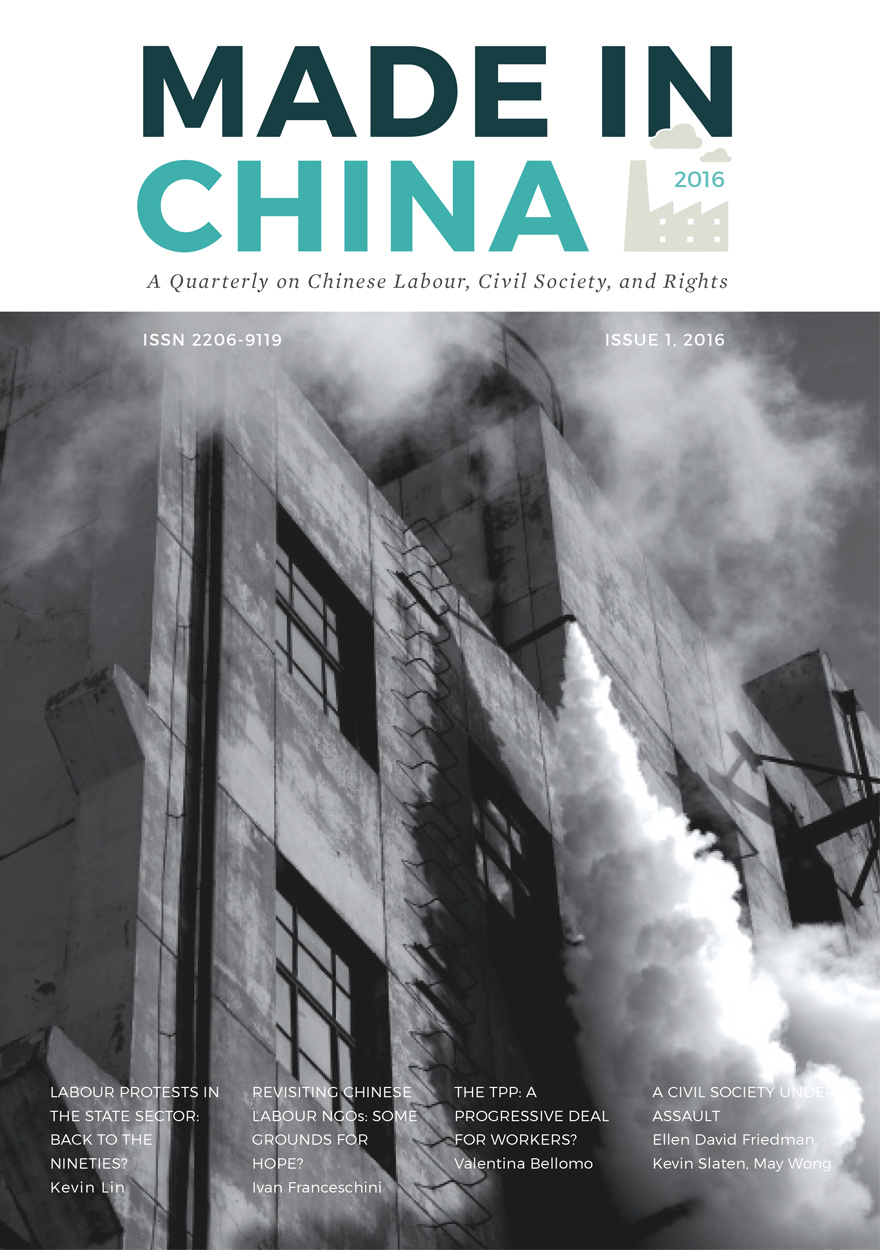
Made in China Journal: Volume 1, Issue 1, 2016 »
Edited by: Ivan Franceschini, Kevin Lin
Publication date: March 2016
In this first issue, you will find summaries of recent events that have taken place in China, as well as a series of columns on specific topics, such as the recent wave of protests in the Chinese state sector and the expected impact of the Trans-Pacific Partnership on labour rights. We devote the core of the first issue to the plight of Chinese labour NGOs, contextualising it through a debate between three prominent international labour experts. Finally, we celebrate the award of the prestigious Joseph Levenson Prize to Luigi Tomba, a long-standing researcher of Chinese labour.
Download for free
Not available for purchase
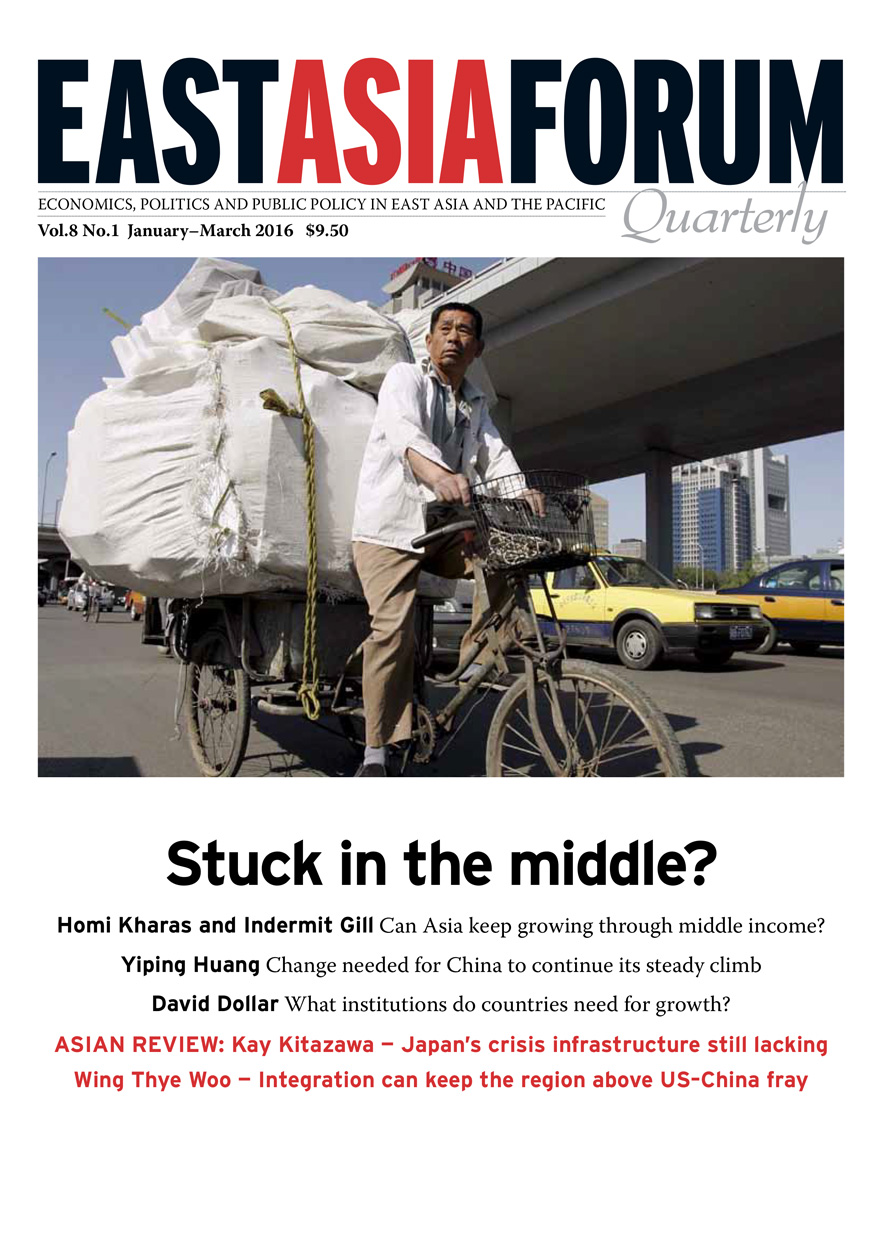
East Asia Forum Quarterly: Volume 8, Number 1, 2016 »
Publication date: March 2016
East Asia Forum Quarterly grew out of East Asia Forum (EAF) online, which has developed a reputation for providing a platform for the best in Asian analysis, research and policy comment on the Asia Pacific region in world affairs. EAFQ aims to provide a further window onto research in the leading research institutes in Asia and to provide expert comment on current developments within the region. The East Asia Forum Quarterly, like East Asia Forum online, is an initiative of the East Asia Forum (EAF) and its host organisation, the East Asian Bureau of Economic Research (EABER) in the Crawford School of Economics and Government in the College of Asia & the Pacific at The Australian National University.
Download for free
Not available for purchase
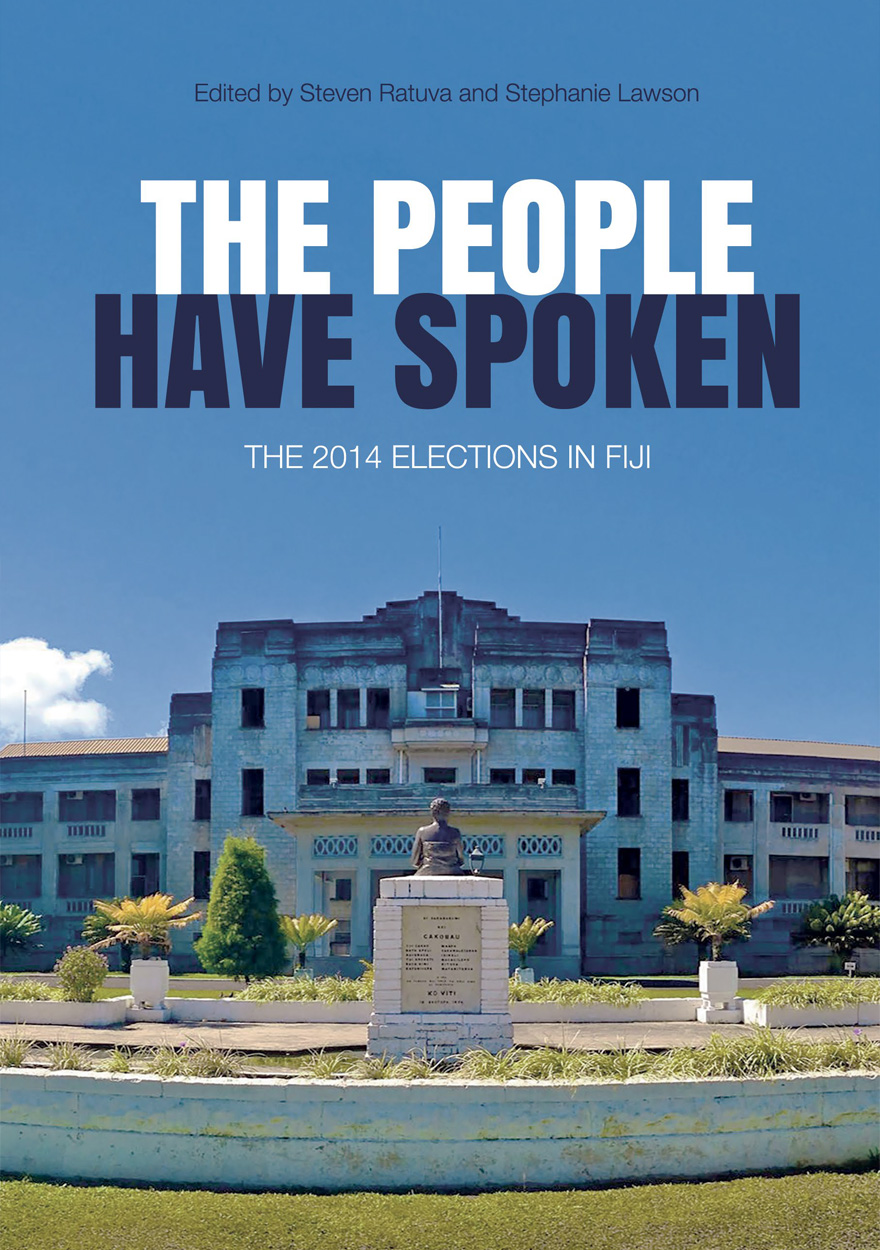
The people have spoken »
The 2014 elections in Fiji
Edited by: Steven Ratuva, Stephanie Lawson
Publication date: March 2016
The September 2014 elections in Fiji was one of the most anticipated in the history of the country, coming after eight years of military rule and under a radically new constitution that introduced a system of proportional representative (PR) and without any reserved communal seats. The election was won overwhelmingly by FijiFirst, a party formed by 2006 coup leader Frank Bainimarama. He subsequently embarked on a process of shifting the political configuration of Fijian politics from inter-ethnic to trans-ethnic mobilisation. The shift has not been easy in terms of changing people’s perceptions and may face some challenges in the longer term, despite Bainimarama’s clear victory in the polls. Ethnic consciousness has the capacity to become re‑articulated in different forms and to seek new opportunities for expression. This book explores these and other issues surrounding the 2014 Fiji elections in a collection of articles written from varied political, intellectual and ideological positions.

Confronting Fiji Futures »
Edited by: A. Haroon Akram-Lodhi
Publication date: January 2016
Fiji, post-independence, has seen several governments, two military coups and, amidst sweeping social, economic and political changes, the presence of divisive identity politics in its journey towards a united, collective Fiji community.
This republished edition of Confronting Fiji Futures takes in these landmark events and eventualities, and aims at a forward-looking assessment of the realities facing Fiji in the present and the future. It focuses on the period of the coups up to and including the 1999 general elections, when an explicitly multiethnic party won government in a surprise landslide result.
This book is the result of a collaborative research project based at the Institute of Social Studies, The Hague, in the Netherlands — an institution with a long tradition of collaborative teaching, research and advisory services in the South Pacific region. It aims to present a range of relevant issues from a number of vantage points. It has brought together a strong diversity of authors led by A. Haroon Akram-Lodhi, including John Cameron, Ganesh Chand, Martin Doornbos, Yash Ghai, Holger Korth, Sunil Kumar, Biman Prasad, Jacqueline Leckie, Satendra Prasad, Steve Ratuva, Robbie Robertson, Ardeshir Sepehri and William Sutherland.

Experiments in self-determination »
Histories of the outstation movement in Australia
Edited by: Nicolas Peterson, Fred Myers
Publication date: January 2016
Outstations, which dramatically increased in numbers in the 1970s, are small, decentralised and relatively permanent communities of kin established by Aboriginal people on land that has social, cultural or economic significance to them. In 2015 they yet again came under attack, this time as an expensive lifestyle choice that can no longer be supported by state governments. Yet outstations are the original, and most striking, manifestation of remote-area Aboriginal people’s aspirations for self-determination, and of the life projects by which they seek, and have sought, autonomy in deciding the meaning of their life independently of projects promoted by the state and market. They are not simply projects of isolation from outside influences, as they have sometimes been characterised, but attempts by people to take control of the course of their lives. In the sometimes acrimonious debates about outstations, the lived experiences, motivations and histories of existing communities are missing. For this reason, we invited a number of anthropological witnesses to the early period in which outstations gained a purchase in remote Australia to provide accounts of what these communities were like, and what their residents’ aspirations and experiences were. Our hope is that these closer-to-the-ground accounts provide insight into, and understanding of, what Indigenous aspirations were in the establishment and organisation of these communities.
This volume will be a great addition not only to the origins and history of outstations, but in light of the closing of over 100 Aboriginal communities in Western Australia, it should be a required bedtime reading for all politicians across Australia. The contributors do not simply concentrate on the so-called outstations movement of the 1970s, but rather help the reader understand why in the 1930s, ‘40s, ‘50s, and ‘60s, Aboriginal people moved away from cattle stations, missions and settlements to reconstruct their moral compass in settings which made more contemporaneous sense, not only to them but often to the whites who were there as well.
—Professor Francoise Dussart, University of Connecticut.
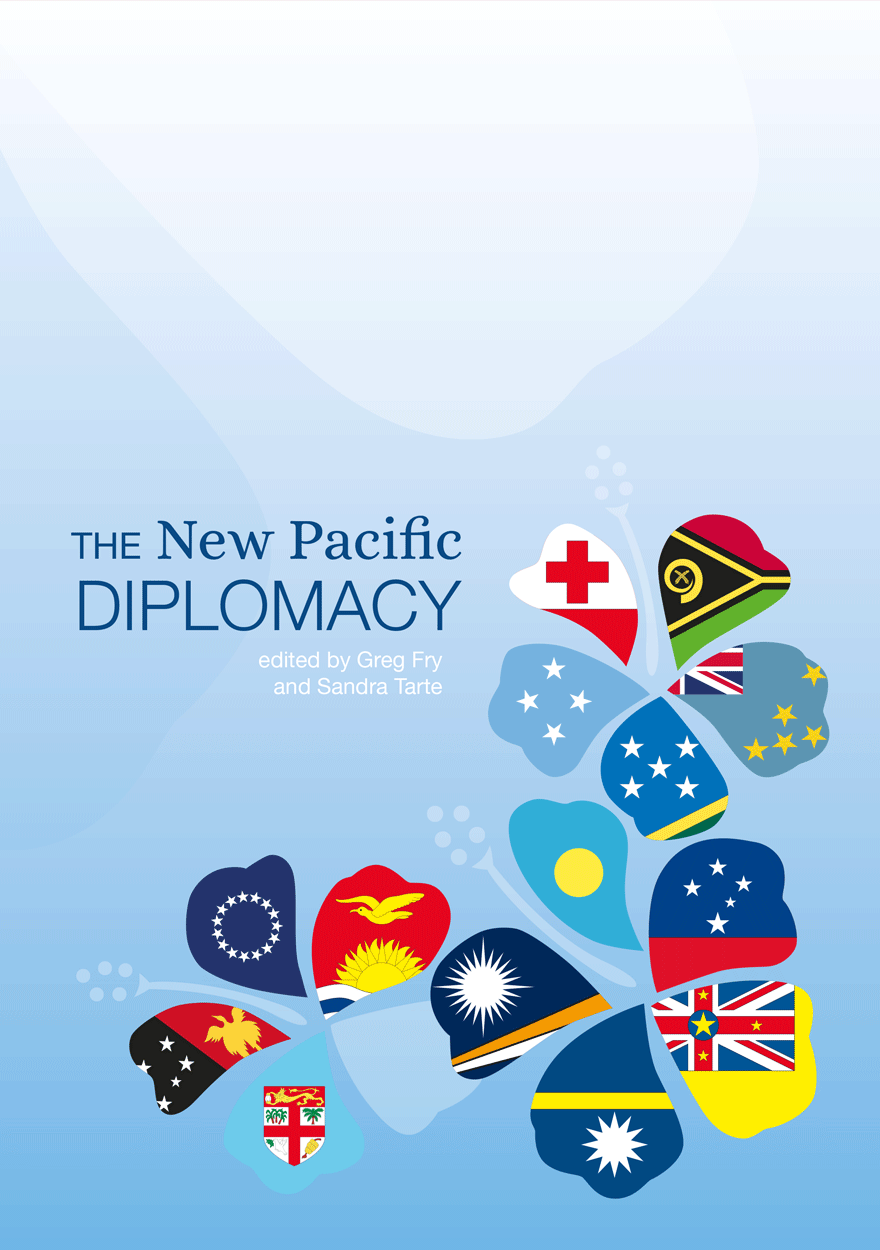
The New Pacific Diplomacy »
Edited by: Greg Fry, Sandra Tarte
Publication date: December 2015
Since 2009 there has been a fundamental shift in the way that the Pacific Island states engage with regional and world politics. The region has experienced, what Kiribati President Anote Tong has aptly called, a ‘paradigm shift’ in ideas about how Pacific diplomacy should be organised, and on what principles it should operate. Many leaders have called for a heightened Pacific voice in global affairs and a new commitment to establishing Pacific Island control of this diplomatic process. This change in thinking has been expressed in the establishment of new channels and arenas for Pacific diplomacy at the regional and global levels and new ways of connecting the two levels through active use of intermediate diplomatic associations.
The New Pacific Diplomacy brings together a range of analyses and perspectives on these dramatic new developments in Pacific diplomacy at sub-regional, regional and global levels, and in the key sectors of global negotiation for Pacific states – fisheries, climate change, decolonisation, and trade.



